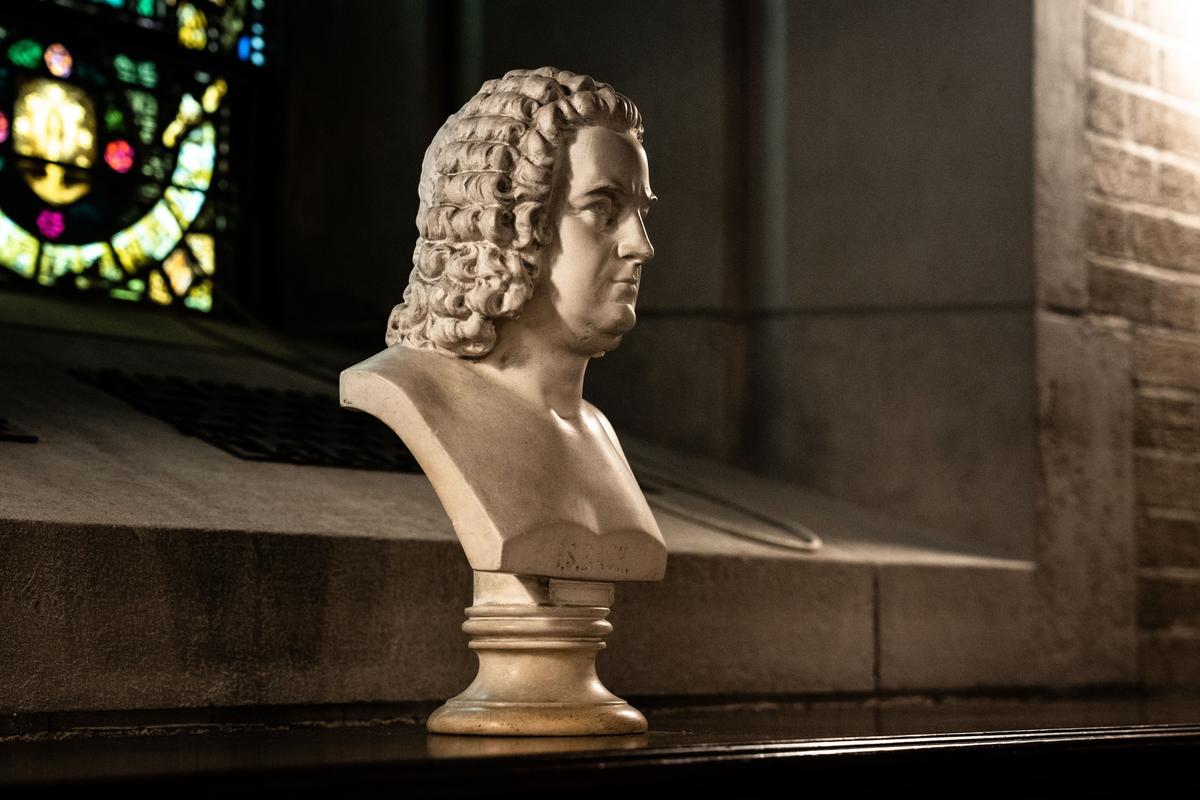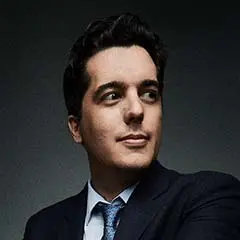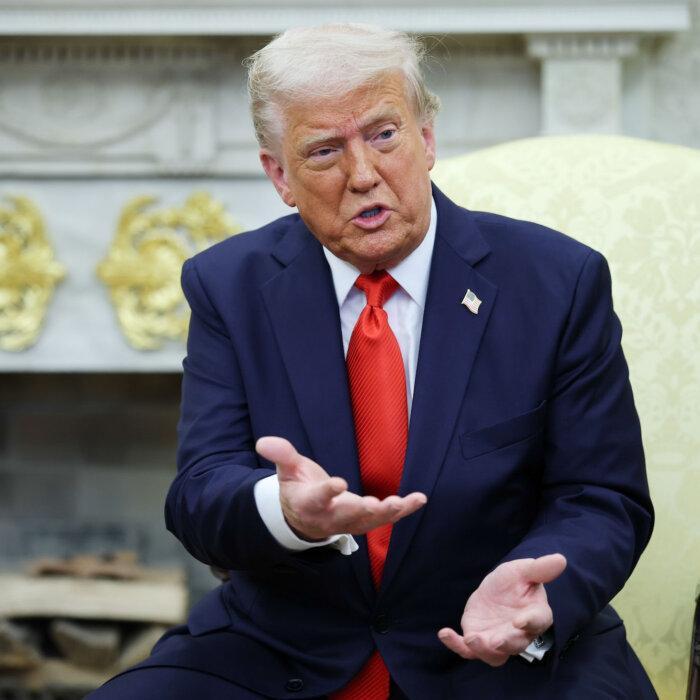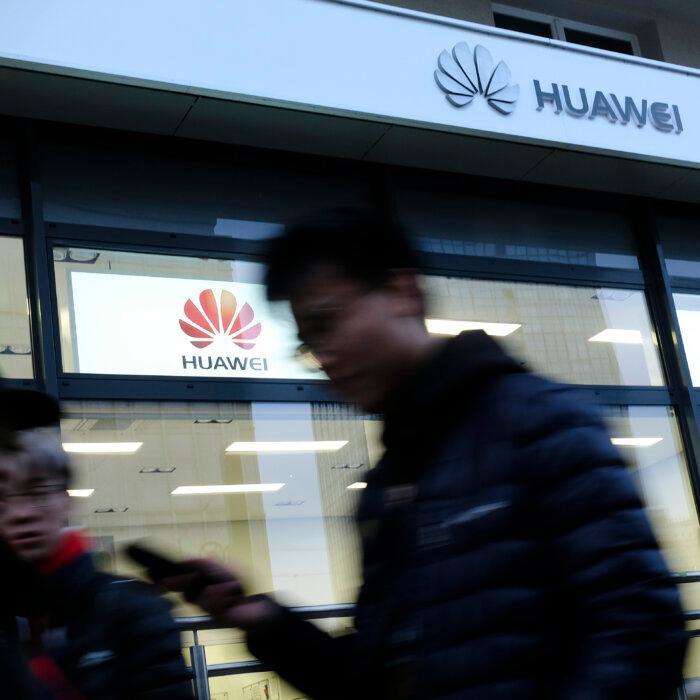CCP Deploys Playbook to Prolong Trade War, Experts Say
Beijing has already employed various familiar tactics from its playbook to retaliate against the United States, including spreading anti-American propaganda.
The Cost of a Nuclear Iran and How Decades of American Diplomacy Backfired: Yoram Ettinger
In the 1980s and 1990s, Ambassador Yoram Ettinger held a number of high-profile positions within Israel’s government.

The Medal of Honor: Above and Beyond the Call of Duty
The prestigious medal recognizes the valor ordinary men are capable of.

The Magical Mushroom Dust You Need in Your Pantry
Blitz dried porcini mushrooms into an umami-packed condiment for deeply flavorful meat rubs.

Children’s Chapter Books for Spring and Beyond
Are your children looking forward to summer vacation? These new and upcoming children’s books are sure to engage and entertain.
Most Read
Top Stories
Trump Signs Order to Simplify Regulations for Federal Procurement
Another executive order calls for prioritizing the procurement of ‘commercially available products and services’ rather than noncommercial, custom alternatives.
Biden Highlights Social Security in Post-Presidential Speech
It was Biden’s first major speech since leaving office.
Shen Yun Performing Arts Is Very Beautiful ‘I’m Learning a Lot,’ Says Company VP
Company Vice President Ivonet Gomez attended Shen Yun Performing Arts for the first time on April 15.
Trump Finds Some Early Success at Supreme Court—A Look So Far
More than 100 lawsuits have been filed against the Trump administration. So far, of seven emergency motions, the president has won five and lost two.
▶The Cost of a Nuclear Iran and How Decades of American Diplomacy Backfired: Yoram Ettinger
In the 1980s and 1990s, Ambassador Yoram Ettinger held a number of high-profile positions within Israel’s government.
Trump Signs Order to Help States Import Low-Cost Medications
The order includes a suite of actions to reduce prices, standardize pricing, improve transparency, and reduce drug development costs.
New CDC Report Shows Autism Now Impacts 1 in 31 American Children
The figure represents a 16.1 increase compared to the same CDC report released two years ago.
Beijing’s New Regulation on Medical Supply Part of War Preparation, Experts Say
The Chinese regime has long been preparing for war, but it’s still too risky for it to launch an invasion of Taiwan, experts say.
Judge Blocks Key Parts of Trump’s Order Targeting Law Firm Susman Godfrey
The president accused the law firm of weaponizing the legal system and undermining election integrity.
Trump Announces Free Flights, Possible Stipends for Self-Deportees
Mass deportations will continue to target violent criminals, while those willing to comply and seek legal entry could see benefits, according to the president.
USDA Cancels $3 Billion Program for Climate-Related Farming
‘It became clear that the majority of these projects had sky-high administration fees,’ the agency says.
American Airlines to Offer Free Inflight Wi-Fi Starting January 2026
The change will make American Airlines the domestic carrier with the most planes offering free inflight connectivity.
Harvard’s Standoff With Trump Administration Presages Court Battles
Federal agencies freeze $2.2 billion and accuse the university of reinforcing an entitlement mindset and violating civil rights laws.
▶Shen Yun Is ‘Absolutely Spectacular’: Business Owner
Shen Yun Performing Arts successfully concluded its 18-show run at the David H. Koch Theater at Lincoln Center in New York City over the weekend.
Trump Opens National Security Probe Into Critical Mineral Imports
Commerce Secretary Howard Lutnick will have 90 days to conduct the analysis and submit a report.
7 Countries Oppose US National Security Review on Copper Imports
Top copper suppliers say that their exports do not threaten U.S. national security, as the Trump administration considers tariffs.
Tracking Trump’s High Level Appointments, Senate Confirmations
The Senate is undertaking the confirmation process for the president’s new administration.
Judge Hints at Possible Contempt in Case of Man Mistakenly Deported to El Salvador
During a hearing on April 15, the judge said the record didn’t demonstrate the administration complied with her order.
Day in Photos: Protests in Tunisia, Nepali New Year, and Easter Gifts for Animals
A look into the world through the lens of photography.
Clear the Clutter, Shed the Weight
Cluttered spaces can contribute to emotional stress and weight gain—clearing them may be the key to lasting change.
Total Southwest Border Apprehensions Last Month Lower Than First 2 Days of March 2024: CBP
This was a 95 percent decrease from March 2024, according to new data from Customs and Border Protection.
Shooting at Dallas High School Prompts Lockdown, Sparks Renewed Safety Concerns
The shooting occurred nearly a year after a similar incident at the same Dallas high school.
The Best of Bach: 10 Great Baroque Compositions
Though not limited to these 10, the German composer’s expansive musical legacy has reverberated for generations.
Special Coverage
Special Coverage






























































![[LIVE Q&A 04/16 at 10:30AM ET] Harvard at Center of Constitutional Debate | Live With Josh](https://www.theepochtimes.com/_next/image?url=https%3A%2F%2Fimg.theepochtimes.com%2Fassets%2Fuploads%2F2025%2F04%2F15%2Fid5842492-041625_REC-600x338.jpg&w=1200&q=75)














































